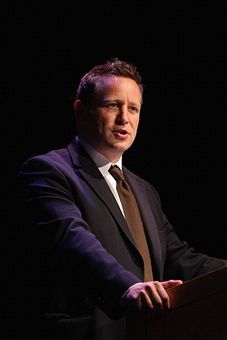 This week, the Open Rights Group launched a campaign against the proposed website blocking scheme between copyright holders and Internet Service
Providers. The campaign was launched on the back of a leaked document suggesting that a voluntary code for industry website blocking be introduced. The document was presented to Ed Vaizey,
the relevant minister.
This week, the Open Rights Group launched a campaign against the proposed website blocking scheme between copyright holders and Internet Service
Providers. The campaign was launched on the back of a leaked document suggesting that a voluntary code for industry website blocking be introduced. The document was presented to Ed Vaizey,
the relevant minister.
Vaizey meets regularly with internet stakeholders to debate digital issues, including net neutrality, parental controls, and, of course, web blocking. These meetings are a vast improvement over the last government, which made technology policy decisions behind closed doors without much – if any – input from outsiders.
Stakeholders want a new structure for reviewing gross copyright infringement and aim to install an expert panel to review transgressions when identified by rights holders. This is an alternative solution to the blocking of copyright infringers under the Digital Economy Act.
Web blocking is a contentious issue, most of all because it’s incompatible with a free and open society. It is also impracticably hard to implement; and even if it were implemented, Internet users can find ways around it. Vaizey himself prefers an industry-wide agreement that will allow copyright holders to monetise their content more successfully, so that government regulation need not be introduced. Hopefully industry and stakeholders will reach such an agreement among themselves. It is possible: as of yesterday, it looks like this kind of agreement will reign in the US.
Dominique Lazanski is the technological policy analyst at the Taxpayers’ Alliance.






Comments